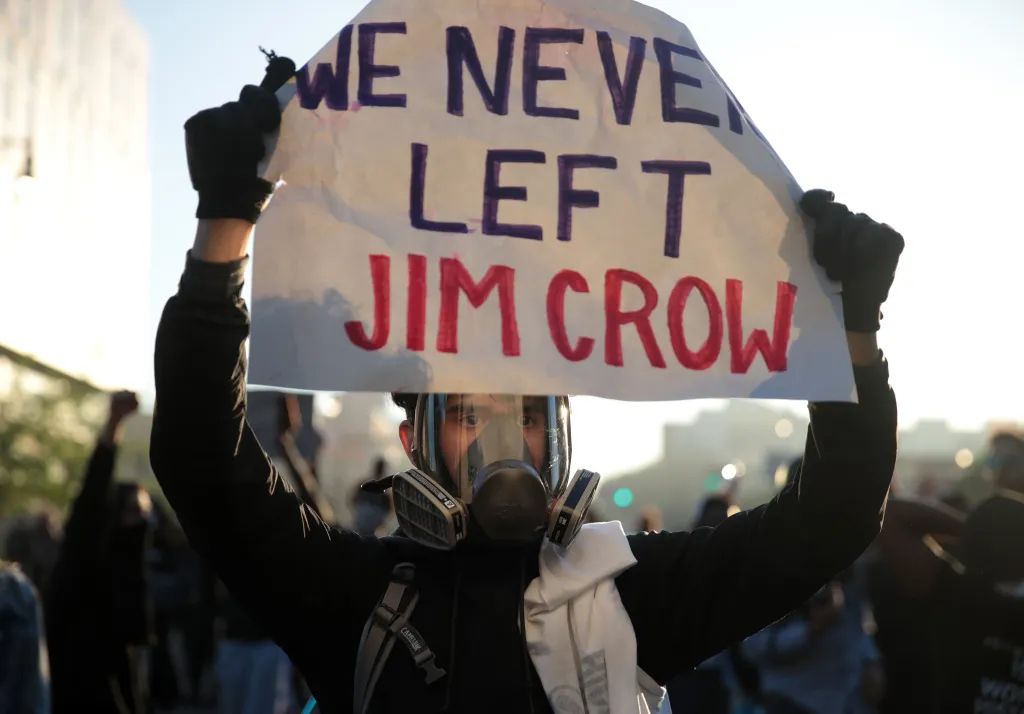
I grew up in Louisiana during the Jim Crow era. After the Civil War, Black people began to gain power during Reconstruction. White Southern Democrats did not like this and began passing what was known as Jim Crow laws to suppress Black progress. The Civil Rights Act of 1964 and the Voting Rights Act of 1965 effectively dismantled the Jim Crow system by outlawing racial segregation and discrimination in public accommodations and employment and by protecting the right to vote.
I thought Jim Crow was dead, but it seems to be making a comeback through policies designed to roll back progress. The Rev. Martin Luther King Jr., Rosa Parks, the late U.S. Rep. John Lewis and other civil rights leaders could not imagine the gains made toward a more inclusive and fairer society being undone. ABC reported that in April, signs reading “For Whites Only” and “For Colored Only” were placed on water fountains at Honey Creek Elementary School in Rockdale, Georgia, as part of an unauthorized classroom history lesson about Ruby Bridges. This behavior traumatized students.
The modern-day prison system has been referred to as the new Jim Crow by attorney and civil rights advocate Michelle Alexander in a book that chronicles the systematic mass incarceration of Black and brown people in America. Black people are incarcerated at five times the rate of white people and Hispanics 2.4 times the rate. Mass incarceration has led to economic inequality. Four million Americans were unable to vote in the 2024 election due to felony disenfranchisement laws, The Sentencing Project found.
Recently, the U.S. Department of Transportation issued an interim rule that removes the presumption that minorities are disadvantaged, requiring businesses to prove their disadvantage on a case-by-case basis. This rule effectively will end the Disadvantaged Business Enterprise Program and significantly harm Black- and brown-owned businesses by stripping them of contract opportunities.
Jim Crow laws attempted to silence and suppress Black people. In the South, it was white Democrats who wanted to reverse progress for Black people. In Illinois, many Black leaders have joined in to preserve a system that suppresses their own people. Elected leadership in Illinois has failed to produce measurable results for the Black community, and that has led to despair, hopelessness and an exodus of African Americans.
Jim Crow laws significantly limited the ability of Black individuals to contract and operate businesses in the South by creating a system of racial caste that suppressed Black economic opportunity.
In Illinois, procurement for Black business owners has fallen short of goals. For example, in 2024, the Illinois Department of Corrections budget was nearly $2 billion, and its total contracting with African American-owned businesses was approximately $1.25 million — even though Black people represent 54.5% of the prison population in Illinois.
Black voters are disillusioned by the lack of progress made on closing racial, health and economic disparities. They remain disappointed by violence and high taxes. This is demonstrated through record low voter participation. The lack of voter participation is a recognition that citizens do not see a reason to vote because nothing will change.
Black students in Illinois consistently fail to meet proficiency standards in reading and math. The Illinois State Board of Education’s solution was to lower proficiency standards.
The leading cause of death for young Black men ages 15 to 44 is homicide; it has been this way for half a century. If this were the case in another country or community, we would call it genocide.
I, too, had a Jim Crow moment in Washington, D.C., where I was invited by U.S. Sen. Chuck Grassley, R-Iowa, to present testimony before the Senate Judiciary Committee on the subject of crime in Democrat-run cities and how President Donald Trump’s administration is addressing the human cost of soft-on-crime policies. My testimony was supposed to be focused on crime and support the deployment of the National Guard to save lives. However, a day before the hearing, I was uninvited. I believe that U.S. Sen. Dick Durbin asked to have me removed as a witness. In that moment, my mind went back to Louisiana, and I had a flashback to the time of Jim Crow. To suppress my testimony felt like an abridgement of my right to freedom of speech and an abuse of power. Although we may have differing viewpoints, I will advocate for a person’s right to speak. It is undemocratic for elected leaders to silence their political adversaries.
Illinois leaders are hoping to shift the focus from their failed policies to Trump’s use of the National Guard to protect the operations of U.S. Immigration and Customs Enforcement personnel. Elected leaders are hoping citizens living in predominantly Black communities forget about failing schools, vacant businesses, rising unemployment, rent and unsafe streets.
The following are suggestions to bury Jim Crow policies:
Mayor Brandon Johnson should sign an executive order tying his pay to performance on resolving issues of minority contracting, violence and school achievement.
Gov. JB Pritzker should sign an executive order reversing the lowering of proficiency standards by the ISBE.
Pritzker should allow the citizens to vote on whether we should continue sanctuary status.
Leaders must stop making excuses and shifting blame to others for their inability to solve basic problems confronting Black communities. When will they accept responsibility for their failed policies that have many voters in the Black community disillusioned? We need to bury Jim Crow.
I write this commentary to make those comfortable with perpetuating Jim Crow era polices uncomfortable.
Willie Wilson is a business owner, philanthropist and former mayoral candidate.